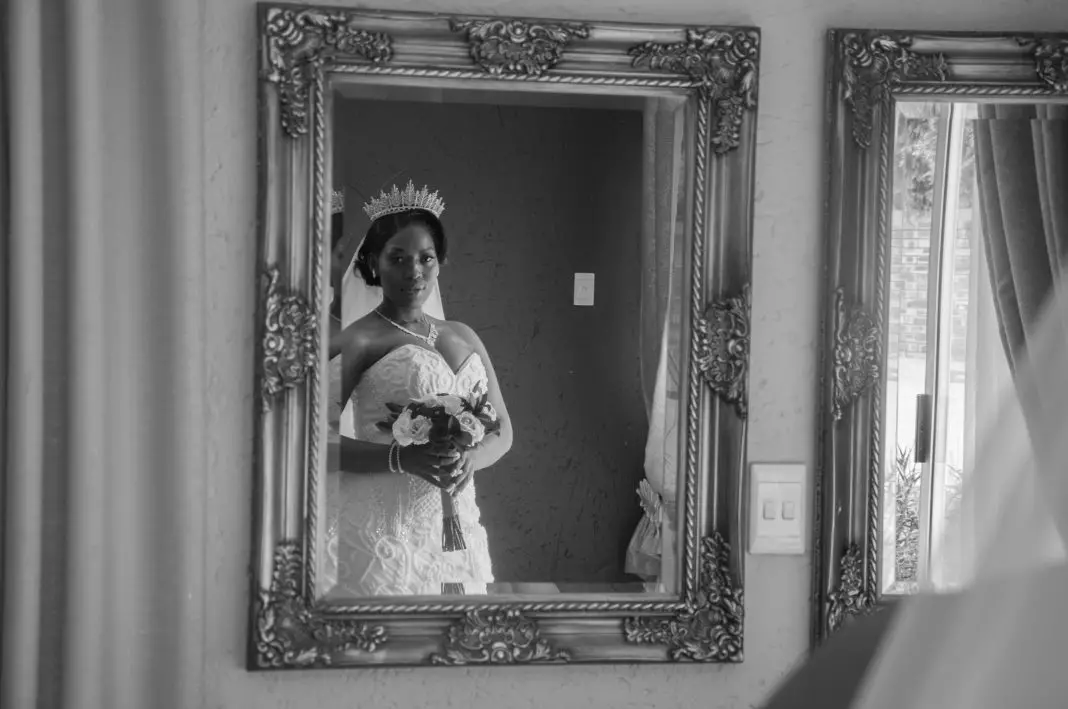Growing up, I had a culture of reading several Nigerian women’s magazines. A lot of them spoke on issues such as marriage, relationships, fashion, entrepreneurship and fitness.
In one of them that I must have read when I was nine or so, they discussed in depth with pictures how a wedding was the best day of a woman’s life. They went on to say that every woman dreamt of being swept off her feet and rescued by a man in a shining armour.
Now, even though I could not articulate my thoughts properly at that age, I knew something somewhere was wrong. For starters, I only thought of a wedding when I saw music videos about it and I cannot remember actively thinking and planning how my dream wedding will go.
If anything, what I dreamt about even at that age, was getting newer Enid Blyton books to read and graduating from primary school to secondary school.
As I grew older, I started noticing how problematic it still is to raise women to see a wedding day as “the best day” of a woman’s life. Take note that the wording never says the best day of a woman and man’s life. It’s always the best day of a woman’s life.
It’s almost as if the concept of a woman’s happiness starts and ends on the day she marries. The irony of saying a wedding day is the best day of a woman’s life is that it unintentionally makes it known to women that they may not have total happiness in the days that follow in the marriage after the wedding is over.
I’m someone who loves love and who ironically loves weddings. This is even if I do not want to get married and even if I have heavy criticisms of the institution of marriage. That said, I love seeing people celebrating what should ideally be a union and partnership defined by love and affection. I love the atmosphere of soft joy that is seen in weddings and the little reunions of old friends that occur at weddings.
What I do not love however, is the way one can tell that the bride is anxious to make her wedding day a truly memorable and best day. One never observes that degree of anxiety in grooms.
There is a word called bridezillas and it describes brides who are so anxious that they begin to do irrational things.
I’ve seen brides tell their friends who are fat that they cannot be on their bridal train. I’ve seen brides break out in anger when a particular thing is not going well even if it can be easily fixed.
All of this is because she has been raised to see a day she shares with another person as her only shot at complete happiness.
This is why no matter what a woman accomplishes in her career and in her educational pursuits, no day is given as much societal reverence as the day she is tied literally to a man.
That is problematic because when the wedding is over she may begin to ask herself if that is it. She may begin to feel resentful at her husband who may not have even packed his honeymoon bag.
Furthermore, it is problematic because it makes mothers of unmarried daughters feel like their roles as mothers are incomplete. This is because a wedding is not only a celebration of a woman, especially in Africa; it is a celebration of a mother’s ability to raise her daughter to be a good wife.
Speaking with Tonia, she explains that it is problematic because it raises women to not value their career achievements.
In her words: “It is problematic for so many reasons. First, it suggests that marriage is the best thing that can happen to a woman. Which is why many single women who have great careers feel they have nothing going for them just because they don’t have a husband.
It is problematic because while women are raised to look forward to marriage, men are encouraged to make money and grow career-wise. Women are eager to be married and we pretend we don’t know why. When you spend five/six years in school learning to be a lawyer or pharmacist, it is only natural to look forward to the day you finally start practising.
It is problematic because it supports the idea that men are the price and it is women who are chasing after them for marriage meanwhile women are simply doing what they were trained/brought up to do— desire marriage.”
For Faith, a fashion designer, she believes it indirectly leaves the responsibility of wedding planning on the woman’s shoulders.
To quote her: “I really think that it is problematic to raise women ONLY to see a wedding day as the best day of their lives because the one thing that women are groomed to aspire to is marriage. So the “wedding” is like your matriculation (you are not expected to have a convocation sha) so that’s the big day for you, only you! That’s like the only “milestone” that’s worth celebrating for women and why is that?”.
Faith went on to say: “It leaves the burden of planning a wedding on the woman alone, the man probably drops only money. The person you are doing the wedding with is chilling and you the bride is suffering, doing ALL the planning and guyman does not really care because walahi it is not the “best day of his life” but it is to you.
A wedding is nice and all that, but women can have so many “best days” and no, it does not have to be a wedding day.”
Ibifaka, a Nigerian woman says she has witnessed how the culture of raising women to see a wedding as the best day plays out unfairly in the wedding planning of some women she knows.
In her words: “Not only is it problematic, it also doesn’t prepare women enough for what they’ll truly encounter in marriage.
I’ve been fortunate with friendships so I’d say I’ve not met any irrational brides, but believe me if I do, I’ll just move away.
Women will go above and beyond to ensure they cover up the men, who mind you are meant to ‘provide’ women will bring money for men to pay their bride price simply because they’re the ones who want to be married.”
She went on to say: “When my friend was getting married, I kid you not, the man wasn’t involved in the wedding process from A to Z! We were the ones with her, planning and preparing even down to his clothes! It’s dangerous because it sets the tone for the marriage after the wedding!
Society makes it look like if anything goes wrong at the wedding then it’s the woman who didn’t plan well, then the vote of thanks from the husband will be ‘I’m grateful to my wife, she planned everything she’s a strong woman’ and everyone will applaud and call him husband of the year!
Men are trained to be nonchalant and it angers my soul!”.
For Nabi, she believes it all boils down to how women are raised to see association with a man as a form of validation and reward.
To quote her: “Most Nigerian parents don’t play with marriage especially for their female children. They’ll even go as far as planning your wedding for you. Inviting the whole world that you really don’t care for. Policing your attire. Your makeup. Bridal party and the likes. They do make brides anxious on their wedding day. Telling them to do this and that before and after. Strict advice and warnings on how to behave. Most fathers don’t tell their sons how to behave in their entire lifetime. Having a “shlong” is all you need as a man.”
Nabi went on to say: “Also most women see the wedding day as a reward for labour not a celebration of a union. They’ve suffered day and night with and for the guy. Fought off other babes. Endured and humoured his friends, families and their irrelevant opinions. Of course they want the wedding done in a particular way. That’s their price. When a hair is out of place, they panic. They get anxious. They feel like they’ve been cheated out of their grand reward and yes when it’s all over and they’re back, they do question their new reality. Primarily because nothing has changed. The wedding day wasn’t a reward. They did get cheated out on something. And they’re lost as to what exactly it is. And then they realise halfway but by then it seems a bit too late.”
We must ensure to raise daughters who do not limit their happiness to one day.
Saying a wedding is the best day of a woman’s life can lead women to stay with abusive and cheating men because such men may be “romantic” when apologising, rich and promise to give a “wedding of your dreams”.
Women must be encouraged to look forward to all the celebrations that will occur as we discover the numerous and glorious parts of our journey to being our best selves.

Angel Nduka-Nwosu is a writer, journalist and editor. She moonlights occasionally as a podcaster on As Angel Was Sayin’. Catch her on all socials @asangelwassayin.

